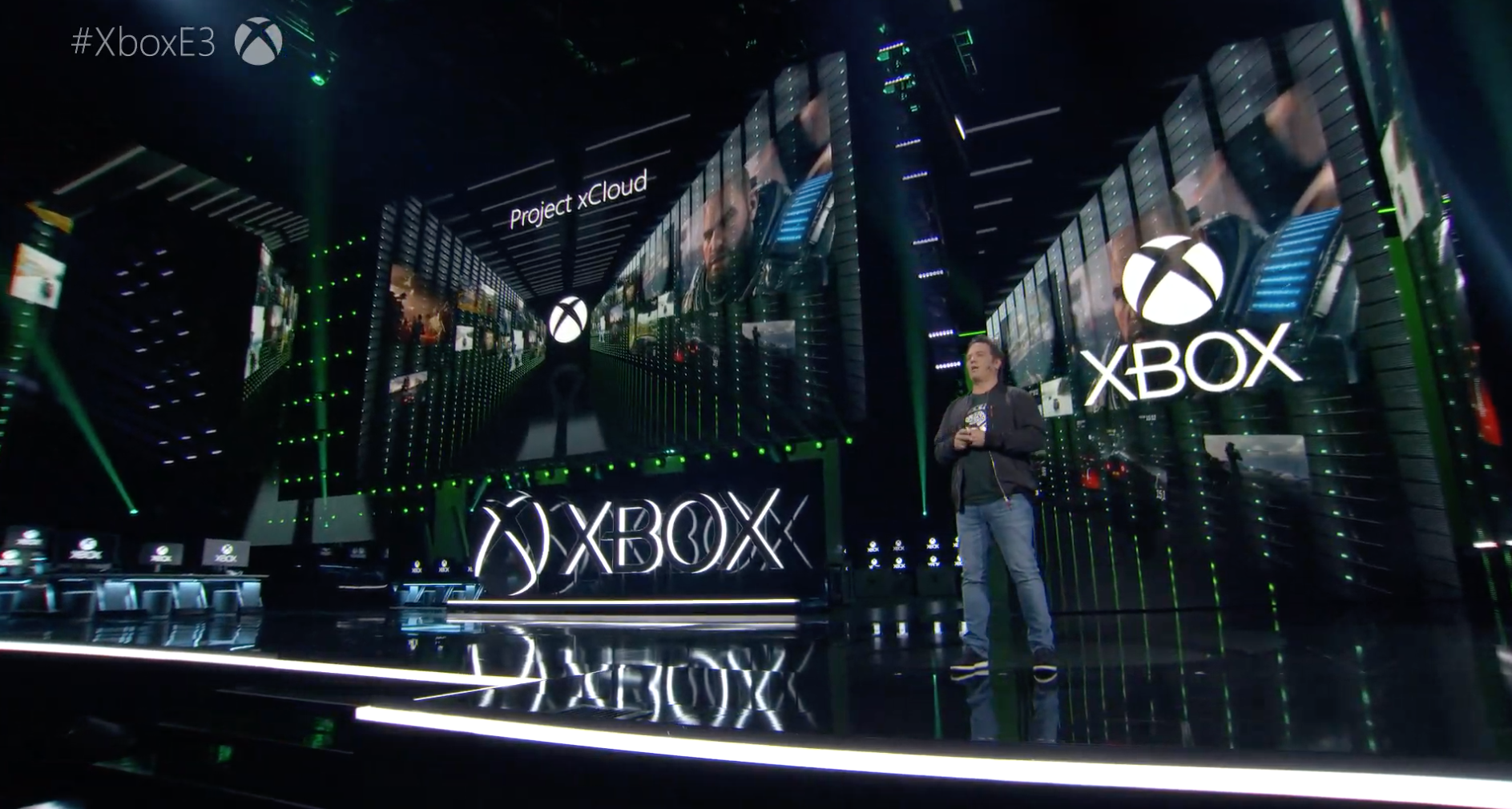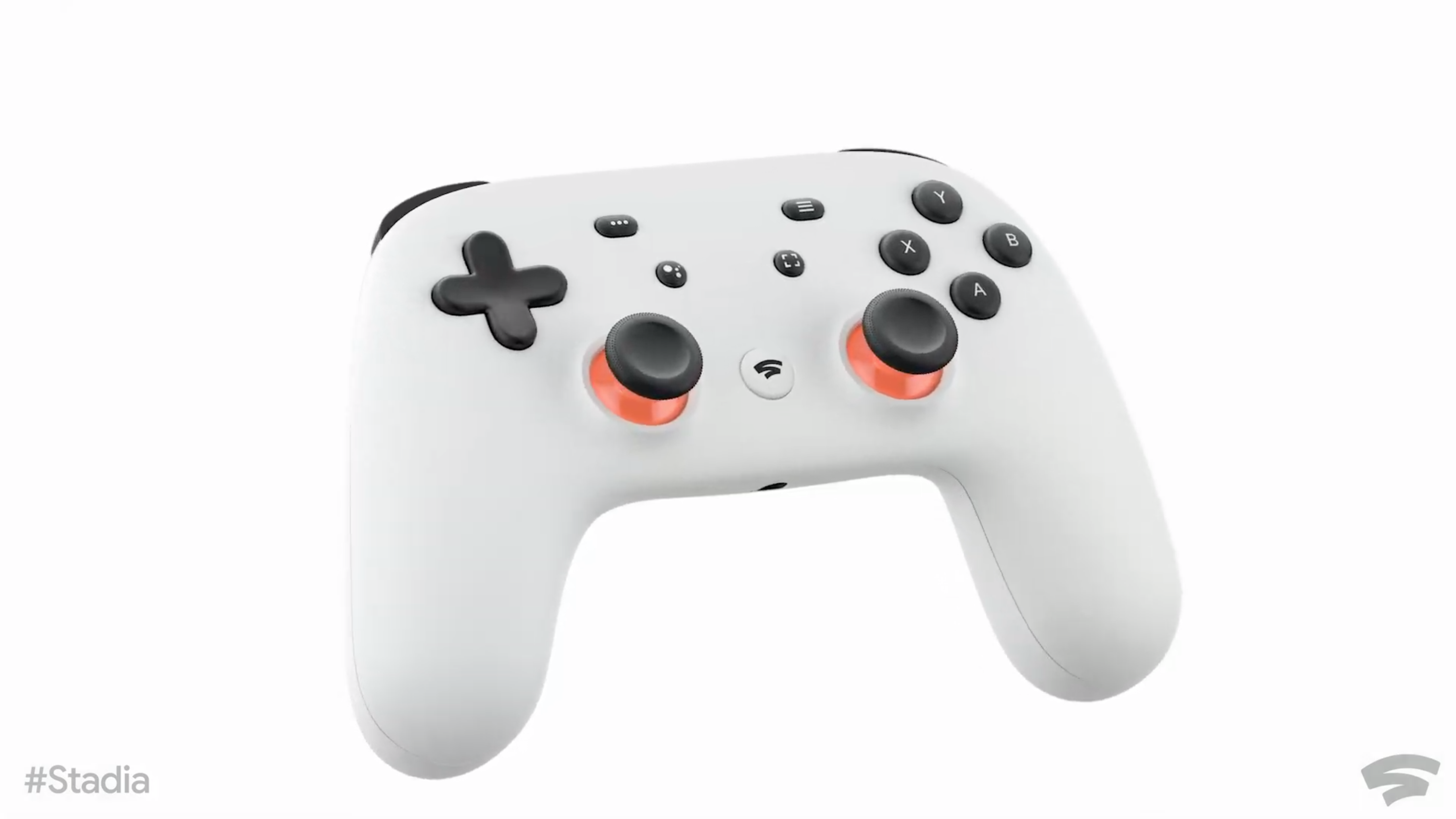The future of gaming is streaming. If that wasn’t painfully obvious to you a week ago, it certainly ought to be now. Google got ahead of E3 late last week by finally shedding light on Stadia, a streaming service that promises a hardware agnostic gaming future.
It’s still very early days, of course. We got a demo of the platform right around the time of its original announcement. But it was a controlled one — about all we can hope for at the moment. There are still plenty of moving parts to contend with here, including, perhaps most consequentially, broadband caps.
But this much is certainly clear: Google’s not the only company committed to the idea of remote game streaming. Microsoft didn’t devote a lot of time to Project xCloud on stage the other day — on fact, the pass with which the company blew threw that announcement was almost news in and of itself.
It did, however, promise an October arrival for the service — beating out Stadia by a full month. The other big piece of the announcement was the ability for Xbox One owners to use their console as a streaming source for their own remote game play. Though how that works and what, precisely, the advantage remains to be seen. What is clear, however, is that Microsoft is hanging its hat on the Xbox as a point of distinction from Google’s offering.
It’s clear too, of course, that Microsoft is still invested in console hardware as a key driver of its gaming future. Just after rushing through all of that Project xCloud noise, it took the wraps off of Project Scarlett, its next-gen console. We know it will feature 8K content, some crazy fast frame rates and a new Halo title. Oh, and there’s an optical drive, too, because Microsoft’s not quite ready to give up on physical media just yet.
I met with Microsoft’s Game Pass team earlier this week to get a preview of the service’s PC offering. When the topic naturally shifted toward xCloud, a rep admitted that a push toward all cloud-based gaming is seemingly an inevitability — but it’s still a ways off by Microsoft’s calculation.
It’s a fair assessment for the time being. 5G and other emerging technologies could go a ways toward making the experience more seamless, but getting a truly great serious gaming experience on one’s iPhone still feels like a pipe dream in 2019, even with servers doing the heavy lifting in the backend.

I will say that I was overall impressed with the xCloud demo It got earlier this week at a Microsoft event. Lag wasn’t imperceptible, but the implementation was impressive nonetheless. Several companies have attempted to offer similar experiences with varying effects, but Stadia and xCloud mark a clear step toward the dream of platform agnosticism. Granted, the experience was really augmented by the inclusion of a bluetooth Xbox controller, but getting a scaled down console experience was impressive, nonetheless.
Certainly, it’s easy to see the appeal of being able to take a high-end gaming experience anywhere. Portability and versatility are a big part of the Nintendo Switch’s appeal, and smartphone gaming has come a long way in the last several years. But Sony, Microsoft and the PC have the edge on the premium gaming experience for the time being.
Microsoft’s other big news on the services front this week was pricing for the PC version of Game Pass. Overall, it’s a pretty solid experience, and Microsoft’s taken pains to take advantage of Windows’ multitasking capabilities by offering a more connected, multimedia gaming experience through chat and third-party apps like Spotify. The port is a clear push toward cross-platform compatibility, but still a long way toward platform agnosticism.
As Lucas noted in his writeup of this week’s news, $4.99 is a pretty reasonable ask for the service. Though that’s the introductory price, with the standard subscription running $9.99. Not a big ask compared to other streaming media services like Spotify and Netflix. Certainly, the move from media ownership toward what amounts to a rental model also seems inevitable, with gaming following the rest of the media industry.
With the breadth of news coming this week at E3, however, it’s hard to shake the feeling that we’re heading in a similar direction as other industries. Game publishers want in on the action, as well. Ubisoft announced the launch of UPlay+ at its own presser. The $15 a month service offers access to classic and new titles like Watch Dogs: Legion and Ghost Recon Breakpoint.

It’s easy to see why publishers want in on the action. Launching their own services cuts out the middle man and lets them offer a more direct experience to gamers. And Ubisoft surely isn’t the only publisher eyeing the category. But we’ve seen this play out in the music and movie industries — third parties tend to operate better in the space, given the breadth of the experiences they provide.
In a sense, Ubisoft will be competing directly with Microsoft, Sony and Apple here. Exclusives on titles seem like an inevitability as publishers look to stand out from the competition, which isn’t great for consumers. Ask anyone who’s tried to listen to Beyonce on Spotify. Ubisoft does have a kind of ally in Google, however, which will be offering up UPlay+ through Stadia.
It’s easy to see, however, how quickly these monthly fees start to pile up. There’s something to be said for the move away from $70 games, but the combination of downloadable content and streaming fees is ultimately going to be a kind of death by a million cuts for gamers.
Companies also see these services as a gate toward ownership. There’s a monthly story on many tech sites about all of the movies being purged from services like Netflix and Hulu. That’s a bigger issue on the gaming front, when users have fully invested themselves in a particular title — and have invested countless microtransactions on downloadable content. Game Pass, for one, will offer the game to purchase at a discount — marking a kind of win-win for publishers.
Again, all of this feels like an inevitable next step for gaming, but there are going to be plenty of growing pains courtesy of pricing structures and technological limitation. Given the entertainment juggernaut that is the gaming industry, it seems the main players will come out unscathed.

